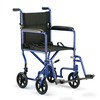How To Look After Your Wellbeing During A Period Of Self-Isolation
Posted on
For the most vulnerable in society the COVID-19 pandemic hasn’t just presented a health risk - the self-isolation it’s required has also taken its toll on their emotional wellbeing and mental health.
That’s why we’ve created this post, with a guide to some of the activities, practices, and general advice you can follow to help lift your spirits if you’re in a period of extended isolation.
Micro-Lifts of Mini-Joy
Usually, our days are built up of these small moments of joy and happiness - tiny lifts that help us make it through the day, things that can easily happen without our even realizing they’re happening at all, such as grabbing a coffee from your favourite store, or running into an old friend unexpectedly.
In isolation these moments are less likely to occur organically. The cumulative effect of this absence can build up over time. You can, however, make an effort to build these micro-lifts into your daily routine. Whether by video chatting with a friend, starting a group club for a book or hobby, or even baking an old favourite recipe. Try and create a few minutes a day focused on these mini-joys.
Focus On That Healthy Diet
With your shopping interrupted and your ability to leave the house curtailed, the temptation to fall into unhealthy eating habits is understandable. However, this can have a strong negative effect—especially if it’s a drastic change from your usual routine.
To make sure you have everything you need, it can help to have a family member or friend deliver your shopping regularly, or look into what local mutual aid and community support is available in your area.
Stay In Touch With Nature
A lack of connection to the world around you can have a profound negative impact, so it’s important to try and stay as in touch with nature and green spaces as you can.
Remember, you can still spend as much time as you like in any private outdoor space you may have access to - and for those that don’t, simply cultivating some plants or spending some time sitting by the window can actually go a long way!
Keep To A Routine
With the order of the world thrown out of sync (as well as your own day to day life patterns), it’s easy to understand how someone can get away from the idea of a daily routine. In the short term, this can feel liberating, but in the long term, it can have a detrimental effect on your well-being.
The best routine will be one that is easy to stick to, but that also offers enough variety and spontaneity to keep things interesting! After all, if you’re spending every day in the same environment, it can be easy for monotony to build up and start to weigh you down
Watch Your Screen Time
The easiest way to occupy your days in isolation can seem to be through browsing the internet and sitting down with your favourite streaming service - but it’s important to make sure you’re not overdoing it when it comes to your screen time, given the disruptive effects prolonged exposure can have.
Try and vary your activities and mix in other hobbies such as arts and crafts, meditation, even doing a spot of gardening if you can.
Stay Connected
Isolating yourself doesn’t mean you have to stay completely isolated from other people. It’s a good idea to schedule regular calls with friends and family, especially if you feel like you’re beginning to struggle when it comes to coping with your circumstances.
It can also be helpful to seek out new social connections and group activities, particularly centered around hobbies and shared interests.
Practice Mindfulness
Negative thoughts, worries about the future, and concern over loved ones - all of these are perfectly understandable in the current circumstances, which is why practicing mindfulness is more important than ever.
Mindfulness is simply the process of bringing yourself into the moment, grounded in your experiences, and paying close attention to your own thoughts and feelings. Mindfulness is often achieved through yoga or meditation, but can also be done through simple relaxation, reconnecting and being patient with yourself will help you get through these periods of worrying and concern.
Make Sure Your Home Is Comfortable
When spending such a significant time in your home, it’s vitally important to make sure that your living arrangement is one of comfort and security. This could mean making it easier for you to get to your favourite chair, rearranging things to get a better view of the window, or ensuring that any care beds or other accessibility aids are well-maintained.
When it comes to looking after our customers we will always go the extra mile. To find out how we’re still meeting your needs, or what we can do for you, get in touch with us today.


















